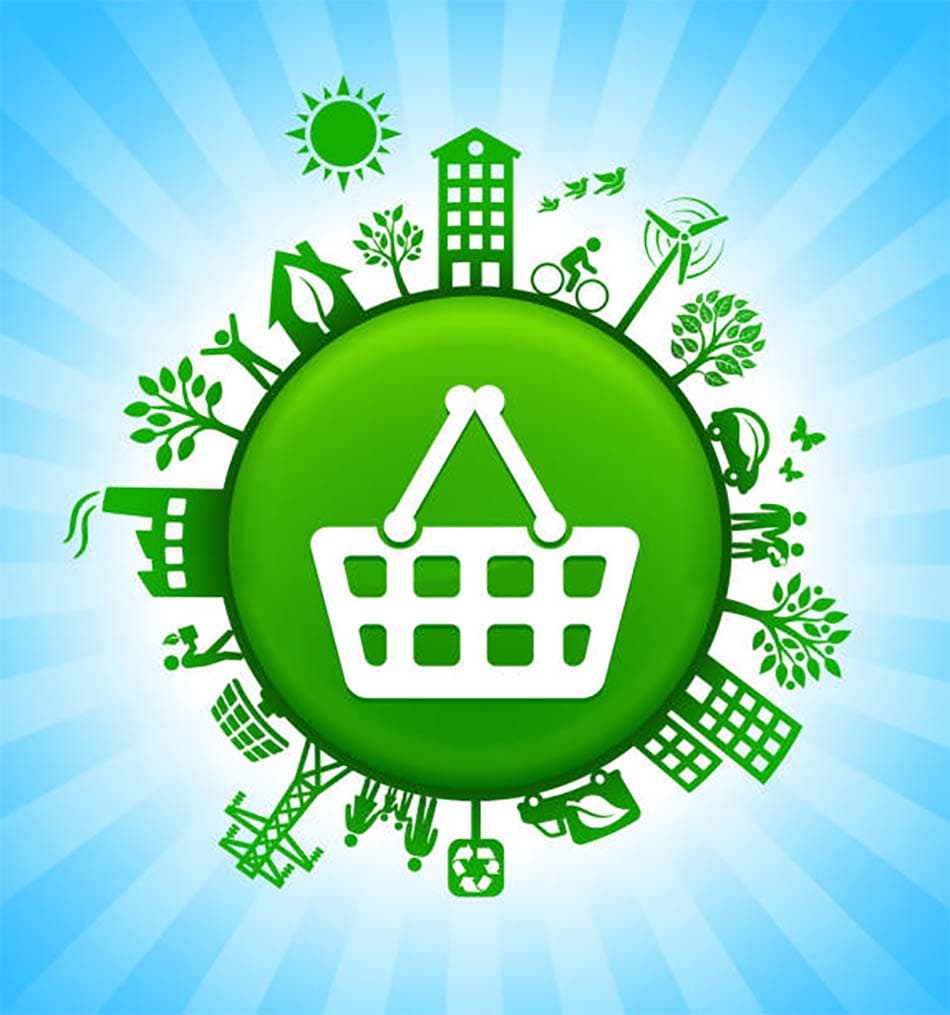Sustainable shopping represents a crucial pillar in the broader movement towards environmental sustainability. It’s a conscientious approach that encourages consumers to prefer products and services that are not only beneficial to them but also have a minimal negative impact on our planet. This approach extends beyond the mere selection of eco-friendly products; it involves a comprehensive understanding of an item’s lifecycle, including its production, use, and eventual disposal or recycling. Sustainable shopping acts as a powerful tool for individuals, enabling them to contribute directly to sustainability projects that aim to reduce waste, conserve precious natural resources, and support ethical practices in labor and production. It signifies a shift towards more responsible consumption patterns, aligning personal choices with the broader goals of environmental preservation and social equity.
Understanding the Power of Your Purchase
The concept that every purchase acts as a vote for the type of world we wish to inhabit is more than a simple adage; it is a profound truth that highlights the significant influence consumers hold over market trends and business practices. Opting for sustainable products and services sends a clear message to businesses about consumer preferences, driving the demand for more environmentally friendly and ethically produced goods. This, in turn, motivates companies to innovate and adopt sustainable practices across their operations. Understanding this power can transform the marketplace, fostering the development of a green economy where sustainability is not just a niche market but a fundamental aspect of all business practices. It’s about recognizing that individual actions, when collectively directed towards sustainable choices, can catalyze significant environmental and social changes.
Eco-Friendly Products: What to Look For
The quest for eco-friendly products is both a challenge and an opportunity to make a tangible difference in the world. When shopping, it’s important to seek out products that are crafted from renewable resources, designed to be biodegradable, or come with minimal and recyclable packaging. Third-party certifications, such as those for Fair Trade, Organic, or Energy Star, serve as valuable guides for consumers seeking to make more sustainable choices. However, sustainability extends beyond the physical attributes of products to encompass the processes behind their creation. Supporting businesses that utilize renewable energy sources, engage in recycling and waste reduction efforts, and uphold fair labor practices contributes to a broader positive impact on the planet. This holistic approach to consumerism encourages a market shift towards sustainability, driving innovation and change across industries.
The Role of Companies in Sustainability
Companies play a pivotal role in the sustainability movement. Those that commit to green practices not only help in conserving the environment but also set industry standards, inspiring other businesses to follow suit. It’s essential for consumers to support these companies, as their success is a testament to the viability of sustainable business models. By doing so, you contribute to a market that values sustainability, encouraging more companies to undertake environmentally friendly initiatives. In line with making responsible choices, learning about options like the Jet Blue Mastercard, which can be activated at www.jetbluemastercard/activate, presents an opportunity to understand how financial tools can also align with eco-friendly lifestyles. More about this can be read in our dedicated article.

Green Consumerism and Community Impact
The impact of green consumerism extends far beyond individual benefits, touching communities and economies across the globe. Choosing sustainable products often means supporting local artisans, farmers, and small businesses that are committed to ethical sourcing and environmentally friendly production methods. This not only helps to reduce the carbon emissions associated with transporting goods over long distances but also supports the vitality and resilience of local economies. Furthermore, embracing sustainable shopping practices can serve as an inspiration for others, promoting a culture of environmental stewardship and social responsibility. As more individuals adopt sustainable habits, the cumulative effect can lead to significant support for sustainability projects worldwide, contributing to the protection of natural resources and the promotion of fair labor practices. In this way, green consumerism becomes a powerful force for positive change, demonstrating how individual choices can have a broad and lasting impact on our planet and its inhabitants.
Tips for Becoming a More Sustainable Shopper
Embarking on the journey to become a more sustainable shopper is an ongoing process of education and action. It begins with a critical evaluation of personal consumption habits, distinguishing between genuine needs and unnecessary wants. Embracing the principles of minimalism and mindful consumption can significantly reduce the environmental impact of our shopping habits. Additionally, exploring the world of second-hand shopping for items like clothing, electronics, and furniture can further decrease the demand for new products and the resources required for their production. Choosing products with eco-friendly packaging—or, better yet, no packaging at all—can also make a big difference. Staying informed about the sustainability practices of the brands and companies we support is crucial, ensuring that our purchases align with our values and contribute to a more sustainable world.
Conclusion: Your Path to Green Shopping
Embracing sustainable shopping is not just a trend; it’s a necessary shift towards a more conscientious and responsible way of living. By making informed choices, you can contribute significantly to sustainability projects, help protect the environment, and foster a sustainable future for generations to come. Remember, every small action counts, and your shopping habits have the power to drive monumental change.



